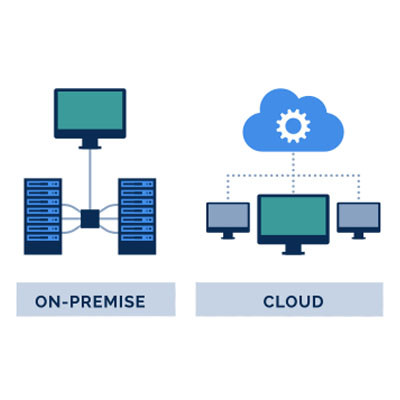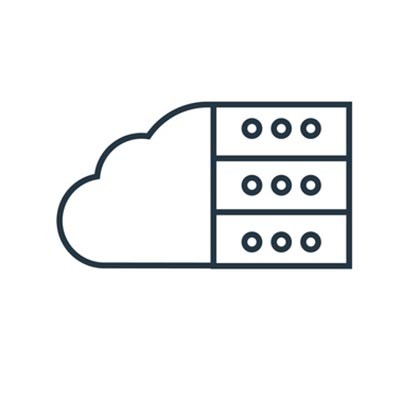We write a lot about the cloud; for good reason. It is one of the most utilized and valuable technologies available to business. The cloud plays a pivotal role in elevating mobile productivity, offering diverse services and features that empower users to access, collaborate, and efficiently execute tasks. Here are three key ways in which the cloud contributes to mobile productivity.
JensenIT Blog
It was only a few years ago when many of us in the IT industry simply did not trust the cloud. There was too much at stake and there simply weren't the robust options that have come in the subsequent years. Obviously, this has changed pretty rapidly and today’s cloud options are quickly becoming the norm.
The cloud has turned out to be a complete game changer for the way people compute. For any business, this can offer opportunities that would not be possible without cloud computing. This week, we take a look at the different types of cloud computing with an eye toward how small businesses can gain value from choosing them.
With cloud storage so affordable and accessible, you have to ask yourself if it’s worth investing in it compared to larger-capacity hard disk drives. Which one is more ideal for your company’s needs? You have options, after all, and it’s important to consider them all before committing to a solution. Let’s examine the pros and cons of each, specifically focusing on the business model for both.
The cloud has helped countless organizations all over the world establish themselves as powerhouses of their industries through dynamic and flexible solutions. One of the biggest reasons why the cloud is so effective—particularly for growing companies—is because of how scalable it is. Let’s examine how this scalability can help your company succeed despite how much it grows.
With cloud computing working wonders for small and medium-sized businesses of all types, you may gain confidence in finding hosted platforms that can help your business. Make no mistake about it, the cloud can work for your business in one way or another. This week, let’s go through how cloud options can help you improve your business’ computing.
The cloud is one way that businesses are changing their operations for the better. Not only does the cloud enable organizations to function in drastically different ways from the status quo, it also gives businesses countless opportunities to reduce costs. Here are just a few ways you can expect the cloud to reduce your expenses and improve your return on investment for IT resources.
When it comes to your desktop infrastructure, your company has several different options available to it, one of which is Desktop-as-a-Service. How does this option compare to having a traditional workstation, and why might a small business get value out of Desktop-as-a-Service? Let’s take a closer look at what DaaS involves.
It’s not unheard of for some threats to remain undiscovered for months or even years, as is the case with a particularly nasty one in the Microsoft Azure database system. This exploit, discovered by cloud security provider Wiz, is built into Cosmos DB, Microsoft Azure’s managed database service. Let’s take a look at the exploit and see what we can learn from it.
After the past few years, the hybrid workplace has risen in its perceived value, the benefits of allowing employees flexibility in where they work from becoming very clear. That said, while the hybrid workplace is much closer to a reality than ever before, there are a few hurdles that must be cleared first.
As technology has developed, the tools available for businesses to use have gained considerable benefits. One particularly paradigm-shifting advancement, the cloud, has allowed businesses access to better solutions than ever before, and with the bonus of making them easier to manage. Let’s go over a few such solutions that many businesses are now embracing.
Despite stay-at-home orders and general social distancing policies currently making the workday that we are used to impossible to sustain, many businesses have found that cloud services have helped them to adjust. Let’s review what cloud services are available right now, and how exactly they can help many businesses operate.
For the past decade, cloud computing has grown fairly rapidly, but as a new decade, and a pesky virus has people (and businesses) leaning on hosted computing solutions more now than ever, it seems like a good time to review the types of cloud options that are available, and how they provide value to businesses just like yours.
Cloud computing is a major player in the way that businesses are approaching their daily operations. This might bring into question whether or not your organization is actually using the cloud in the first place, but one thing is certain--if you haven’t implemented the cloud yet, it’s difficult to not do so, especially considering how great it can be for your company.
Thanks to the increasing capabilities of modern computing networks, businesses have been able to experience enhanced productivity. One such capability, cloud computing, has allowed businesses to reach outside of their physical location to conduct their operations. Here, we’ll review some of cloud computing’s other benefits.
Thanks to the coronavirus, many office workers are working from home to avoid the spread of the virus. For many, this can feel like a nice change of scenery, while others might have a tinge of additional anxiety from it. Regardless of where you stand, working remotely can be both effective and productive, if done right.
We are all in the cloud. The concept of cloud computing and cloud storage has revolutionized the way businesses handle data storage and software distribution. We have helped many of our clients utilize cloud-based services, and these days, most of us are connected to this entity labeled as “the cloud” in one way or another. The question is, how can we tell if our data is safe?
Technology is trending, there’s no doubt about that, but if you are a decision maker at a small business, technology solutions aren’t typically developed for your business in mind. As a result, it can often be difficult for the SMB to get tools that are scalable enough to make sense for them, while also getting powerful options that will actually work to improve some part of the business. This month, we’ll take a look at three trending technologies that small businesses are starting to use regularly.
Cloud computing has revolutionized the way business is done, but most businesses don’t always feel comfortable storing data and hosting critical infrastructure in the cloud. Every business has to determine what kind of computing infrastructure is right for them. Many businesses today have decided to spread their technology investments around as they attempt to find solutions for all types of operational needs.




















